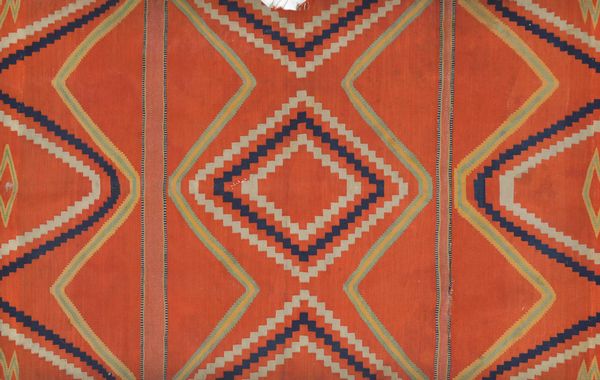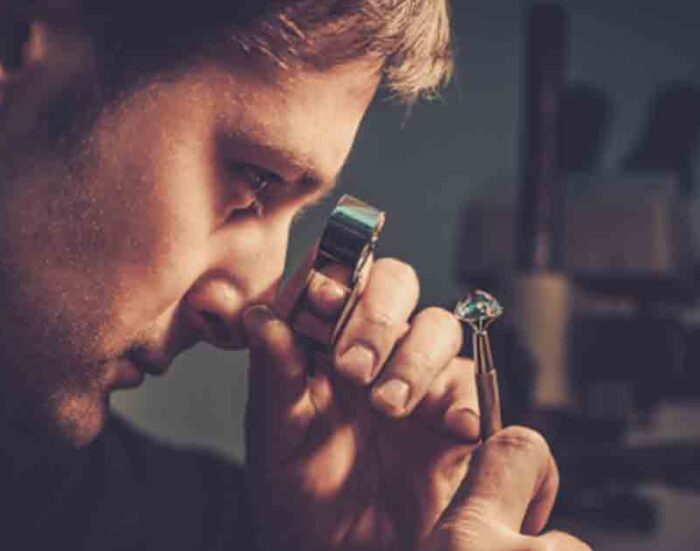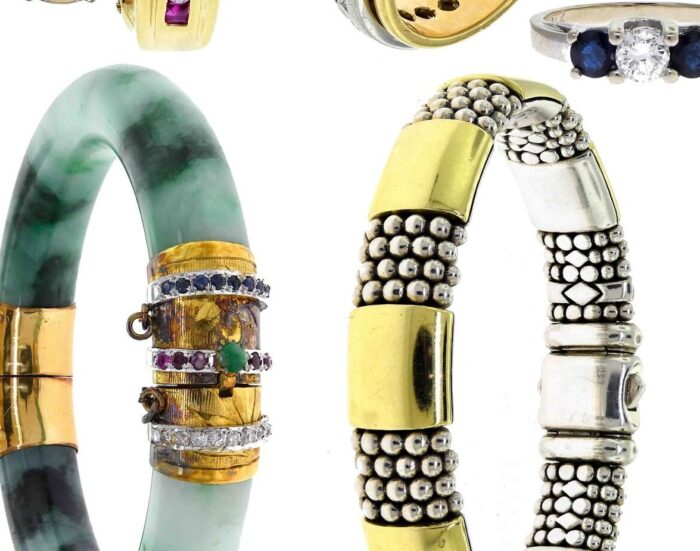Antique Textiles: Finding the Best Dealers, Appraisers, and Auctions
Collectors have treasured antique textiles for centuries, offering a glimpse into the past and the history of fashion and design. Whether you are a collector or simply curious about antique textiles, knowing where to find the best dealers, appraisers, and auctions can help you navigate this fascinating world.
What are Antique Textiles?
Antique textiles refer to any textiles or fabrics over 100 years old. It can include everything from antique lace and embroidery to vintage quilts and tapestries. Antique textiles are often treasured for their historical significance, artistic value, and rarity. It can also hold sentimental value for those who inherited or acquired them from family members as part of a collection.
Finding Antique Textile Dealers
Antique textile dealers are an excellent resource for finding rare and unique pieces. Often, they specialize in specific types of antique textiles, such as lace, embroidery, or quilts. To find the best dealers, start by researching online and reading reviews from other collectors. You can also attend antique textile shows and fairs to meet dealers in person and see their collections firsthand.
When working with antique textile dealers, you must ask questions about the history and provenance of the pieces you’re interested in. It would be best if you also asked about the condition of the textiles and whether any repairs or restorations have been made. A reputable dealer will be transparent about the condition of their pieces and provide documentation to support their claims.
Getting Antique Textiles Appraised
Getting an appraisal is essential if you own antique textiles and want to know their value. An appraisal will provide an accurate assessment of the value of your textiles and help you determine a fair asking price if you decide to sell them. To find a reputable appraiser, look for certified appraisers specializing in antique textiles. You can also ask for referrals from other collectors or dealers.
During the appraisal, the appraiser will examine the textile’s condition, age, rarity, and historical significance. It’ll also consider market trends and demand for similar pieces. After the appraisal, you’ll receive a detailed report outlining the value of your textiles.
Finding Antique Textile Auctions
Antique textile auctions are another great way to find rare and unique pieces. Auction houses often specialize in specific types of textiles, such as vintage quilts or antique lace. To find the best auctions, research online and read reviews from other buyers. You can also attend textile auctions in person or bid online.
When bidding on antique textile auctions, it’s essential to set a budget and stick to it. You should also research the estimated value of the pieces you’re interested in and consider any additional fees or commissions you’ll need to pay. Finally, be prepared to compete with other collectors bidding on the same pieces.
Selling Antique Textiles
If you own antique textiles and want to sell them, there are several options to consider. You can sell them through a dealer, auction house, or online marketplace. When selling antique textiles, cleaning and repairing them beforehand is essential to increase their value. It would help if you also researched comparable pieces to determine a fair asking price.
When working with dealers or auction houses, be prepared to pay fees or commissions for their services. If you sell your textiles online, take high-quality photos and provide detailed descriptions to attract buyers.
Conclusion
Antique textiles offer a glimpse into the past and the history of fashion and design. Whether you’re a collector or simply curious about antique textiles, knowing where to find the best dealers, appraisers, and auctions can help you navigate this fascinating world. Following these tips, you can find rare and unique pieces and ensure a successful sale or purchase.
What is the Difference Between Antique Appraisal and Valuation?
Everything You Need to Know Before Selling
Antiques can be more than simple old items. Have you ever found something you thought was a work of art, a historical artifact, or a familiar relic that held sentimental value for you or your loved ones? These articles are unique and have a significant meaning for us. If you have antiques that have value, it is fundamental that a professional and reliable appraiser evaluates the value. We will show you the step-by-step process to ensure you find a reliable assessor and understand the difference between assessment and valuation.
Antique Appraisal: What You Need to Know
An experienced appraiser conducts an antique appraisal to determine the value of your antique. Factors such as the item’s condition, restoration, manufacturer’s mark, provenance, rarity, and demand among antique buyers are considered. Getting an expert opinion on the value of your antiques can help you get the best price when selling. When you get an appraisal, the appraiser will provide you with a legal document that can be used for various purposes such as taxes, insurance, estate planning, and wills. It is an important document to help you make informed decisions regarding assets and financial planning.
Antique Valuation: What You Need to Know
An antique valuation is a more comprehensive process than a formal appraisal. It involves a different level of research and detail. It is more of an estimation of the antique’s value and may need to be set on paper. The appraiser might give you a verbal estimation, which can be helpful when you want to have a general idea of the value of your antique. It can also be beneficial for insurance purposes, and some insurance companies will accept a valuation when insuring your antique. However, the more significant the item’s value, the more likely the insurance company will require a formal appraisal. A valuation is usually the first step to determine if you need an appraisal.
Finding a Reliable Appraiser: Tips and Tricks
Finding an ethical and experienced appraiser is crucial, especially for online appraisals where you must mail the antique to them for assessment. Ask for referrals from family, friends, and co-workers, and read online reviews. Find antique buyers and sellers who are experts in the antiques you want to appraise, and visit antique shops and auction houses to find the appraiser you are looking for.
Antique Appraisers Auctioneers: Your Trusted Partner in Antique Appraisal and Valuation
Antique Appraisers Auctioneers has a team of experienced and knowledgeable appraisers who can help you with all your antique appraisal and valuation needs. We provide reliable and accurate assessments of your antiques. We are dedicated to assisting you in getting the best value for your items. We can also help with estate planning, tax purposes, and insurance coverage. Contact them today to learn more about their services and how we can assist you with your antique evaluation needs.
Protecting Your Antiques
Antique appraisals and valuations are not only for those looking to sell their antiques. We can also be helpful in estate planning, insurance coverage, and determining the value of family heirlooms. The process for getting an antique appraisal or valuation can vary, and it’s essential to find a reliable appraiser with experience in the antique you want to appraise.
In addition to using antique appraisals and valuations for practical purposes, we can also be an excellent way to learn more about the history of your antiques. An experienced appraiser can provide information about the manufacturer’s mark, provenance, and rarity of your antique, giving you a better understanding of its value and significance.
In conclusion, whether you’re looking to sell or want to protect your valuable antiques, an appraisal or valuation can give you an accurate understanding of their worth and significance. Contact Antique Appraisers Auctioneers today to learn more about their services and how we can assist you with your antique evaluation needs.
Selling Antique Jewelry – What You Need to Know
If you inherited antique jewelry from your ancestors, you possess something rare and precious. However, you might have forgotten about it or never worn it. What’s the point of having such valuable heirloom jewelry if it remains tucked away in a drawer, out of sight and mind? If you own antique jewelry you no longer wear or appreciate and need cash, consider selling it. With the correct information and guidance, you can quickly sell antique jewelry. But before you proceed, it’s essential to understand the true definition of antique jewelry.
What is Antique Jewelry?
Antique jewelry items are at least 100 years old. They could be rings, earrings, necklaces, pendants, bracelets, brooches, cufflinks, watch chain charms and fobs, and more. Antique jewelry can include items from the Georgian Era, Victorian Era, Edwardian Era, or Art Deco Era. These eras are characterized by different styles, designs, and influences that reflect the historical and cultural context of the time. For example, Georgian jewelry is often inspired by nature and classical motifs, Victorian jewelry is controlled by the Queen’s personal taste and mourning jewelry, Edwardian jewelry is marked by elegance and delicacy, and geometric shapes and bold colors characterize Art Deco jewelry.
Not All Antique Jewelry Buyers are Trustworthy
When it comes to antique jewelry appraisals, you need to reach out to an expert with extensive experience in the field. Only a few professional antique jewelry buyers understand the vitality of jewelry appraisals. Those who understand will lovingly walk you through the jewelry appraisal process, explaining the details to ensure you receive the highest return.
You may get perplexed at first when you’re in the market to sell antique jewelry. There may be hundreds of antique jewelry buyers screaming for your attention. You need to think wisely and choose the right help from profuse antique jewelry dealers available in the market.
Specialist antique jewelry buyers go out of their way to arm you with the information you need to get the perfect price for your jewelry. They decipher the fair market value of your antique jewelry based on different factors, including its historical period, intrinsic value, condition, demand, and rarity.
What to Expect When Selling Antique Jewelry?
Selling your fancy antique jewelry can be both an emotional and intimidating undertaking. For a few, it’s a challenging task to sell antique jewelry at all. Only some antique jewelry dealers will pay a fair market price for your precious fine jewelry and diamonds.
If you plan to sell a vintage piece, perhaps a family heirloom or a neckpiece that has been inherited, an expert jewelry appraiser will scrutinize the item thoroughly. It will comprise the entire history, including its origin, year of establishment, significance, and more.
Antique jewelry buyers remain central to examining the metal’s quality. They look for the purity of metal, whether it is gold, platinum, or silver, which is measured by its carat. The carat measurement is one of the vital components in finding an item’s potential worth. They will also examine any gemstones used in the piece and assess their quality while determining value.
How do you sell antique jewelry online or offline?
There are different ways to sell your antique jewelry, depending on your preferences, convenience, and goals. You can sell your jewelry at local retailers, such as jewelry stores, pawn shops, or online. Choosing the best option depends on several factors, such as how fast you need the money, what jewelry you’re trying to sell, and how much you expect.
Selling Antique Jewelry at Local Retailers
One of the most common ways to sell antique jewelry is to visit a local retailer, such as a jewelry store or a pawn shop. This option has advantages, such as getting instant cash, avoiding shipping and handling fees, and negotiating in person. However, there are also some drawbacks, such as getting a lower price, having limited options, and risking getting scammed.
Suppose you research beforehand to sell your antique jewelry at a local retailer. It would help if you had an idea of the value of your jewelry based on its age, condition, rarity, and demand. You can use online resources, such as [Antique Jewelry University](^1^) or [Lang Antiques](^2^), to learn more about your jewelry and its market value. You should also compare different retailers and their offers and check their reputation and reviews. You should avoid selling your jewelry to the first buyer you encounter and instead, shop around and negotiate for the best deal.
Selling Antique Jewelry Online
Another popular way to sell your antique jewelry is to list it online, either on a general marketplace, such as eBay or Amazon, or on a dedicated antique marketplace, such as Ruby Lane or 1stdibs. This option has some benefits, such as reaching a wider audience, having more control over the price, and being able to showcase your jewelry with photos and descriptions. However, there are also some challenges, such as paying fees, dealing with shipping and returns, and facing competition and fraud.
If you choose to sell your antique jewelry online, you should carefully prepare your jewelry and listing. Have your jewelry cleaned or polished, and keep it in its original packaging if possible. You should also take clear and high-quality photos of your jewelry from different angles and write a detailed and accurate description, including its history, condition, measurements, and any flaws or defects. You should also set a realistic and competitive price for your jewelry based on your research and the current market trends. You should also choose a reputable and secure platform to sell your jewelry and follow their guidelines and policies.



